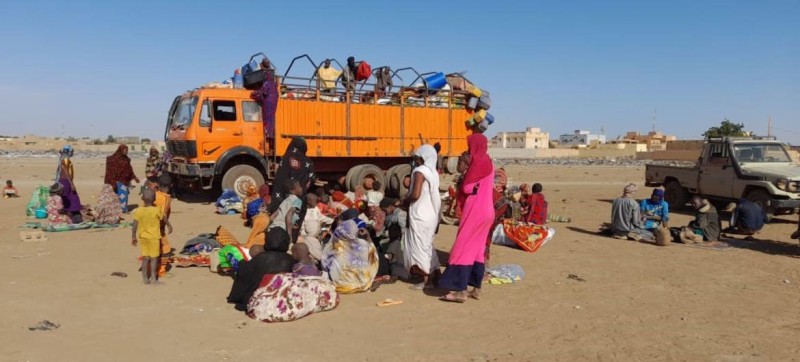Mali: WHO doctor seized by ‘unidentified assailants’, as UNHCR raises alarm over continuing violence
© UNHCR/Abdoulatif Halidou Violence and threats by armed groups continue to displace refugees and civilians in Mali.
Tedros Adhanom Ghebreyesus said in a tweet posted on Tuesday that WHO was working with local authorities to investigate the abduction of Dr. Mahamadou Diawara, who had worked for the agency in the town for around three years, “and ensure our colleague’s quick return to his family.”
Tweet URL
WHO said in a statement that he had been “leading efforts to provide medical care to communities that are often remote and face insecurity risks and violence.”
The driver of his car was also attacked, but not abducted, and was said to be recovering from the incident.
“The motive for the abduction is unclear” at this time, said WHO.
Support wanes for those forced to flee
In another sign of the wider instability still gripping much of Mali, the UN refugee agency (UNHCR) earlier called for enhanced support by the international community, for those recently displaced across the northwest African nation, where continued violence and threats by armed groups have forced both local Malians and refugees to flee for safety.
Mohamed Toure, UNHCR’s Mali representative said at a press briefing in Geneva that a vacuum had been created since the end of a counter-insurgency operation led by the French military against Islamist militants.
“In this vacuum right now, we don’t have any State authorities in that region, so it is really left in the hands of armed groups, terrorist armed groups, that are really spreading terror, spreading killings, spreading rapes, creating misery”.
Operation Barkhane was an initiative which began on 1 August 2014 and formally ended on 9 November 2022. It was led by the French military against Islamist groups across Africa’s Sahel region.
The operation was led in co-operation with five countries that span the Sahel: Burkina Faso, Chad, Mali, Mauritania, and Niger. France began withdrawing its troops from Mali last February.

© UNOCHA/Michele Cattani Displaced women prepare food at an informal camp in Bagoundié, Mali.
Longtime refugees running again
The numbers fleeing from those countries has notably increased in the past few weeks, “including refugees who have been displaced for quite a long number of years, of time”, said Mr. Toure.
Gao, Timbuktu and Kidal are some of the towns to which the refugees are currently fleeing to seek for security. UNHCR and its partners are supporting local authorities in responding to the needs of the forcibly displaced, providing them with emergency shelter, education, food and water supplies, together with cash assistance aimed at economic empowerment.
“We are talking about almost half a million people who are in need of assistance in terms of displacement”, said UNHCR’s Mali representative.
3 million in need
“Of course, beyond that, in Mali we have almost three million people who are in need of humanitarian assistance”, he added, and just 38 per cent of the support asked for last year was provided.
UNHCR said that as of the end of December, they were hosting more than 60,000 refugees in Mali, including 25,000 from Burkina Faso. Meanwhile, some 440,000 Malians remain internally displaced due to continued violence and threats from armed groups.
Mr. Toure said that refugees had received frequent testimonies from refugees and IDPs reporting the presence of foreign fighters, “involved in those conflicts”.
Show greater solidarity
As the needs of the displaced remain enormous, UNHCR is appealing to the international community to show greater solidarity for the displaced in Mali and in neighboring countries, to be able to continue to deliver life-saving assistance.
He pointed to a “kind of Mali fatigue” in terms of fundraising and support, which was “diminishing drastically” the level of assistance being provided to vulnerable families on the run.




Comments are closed.